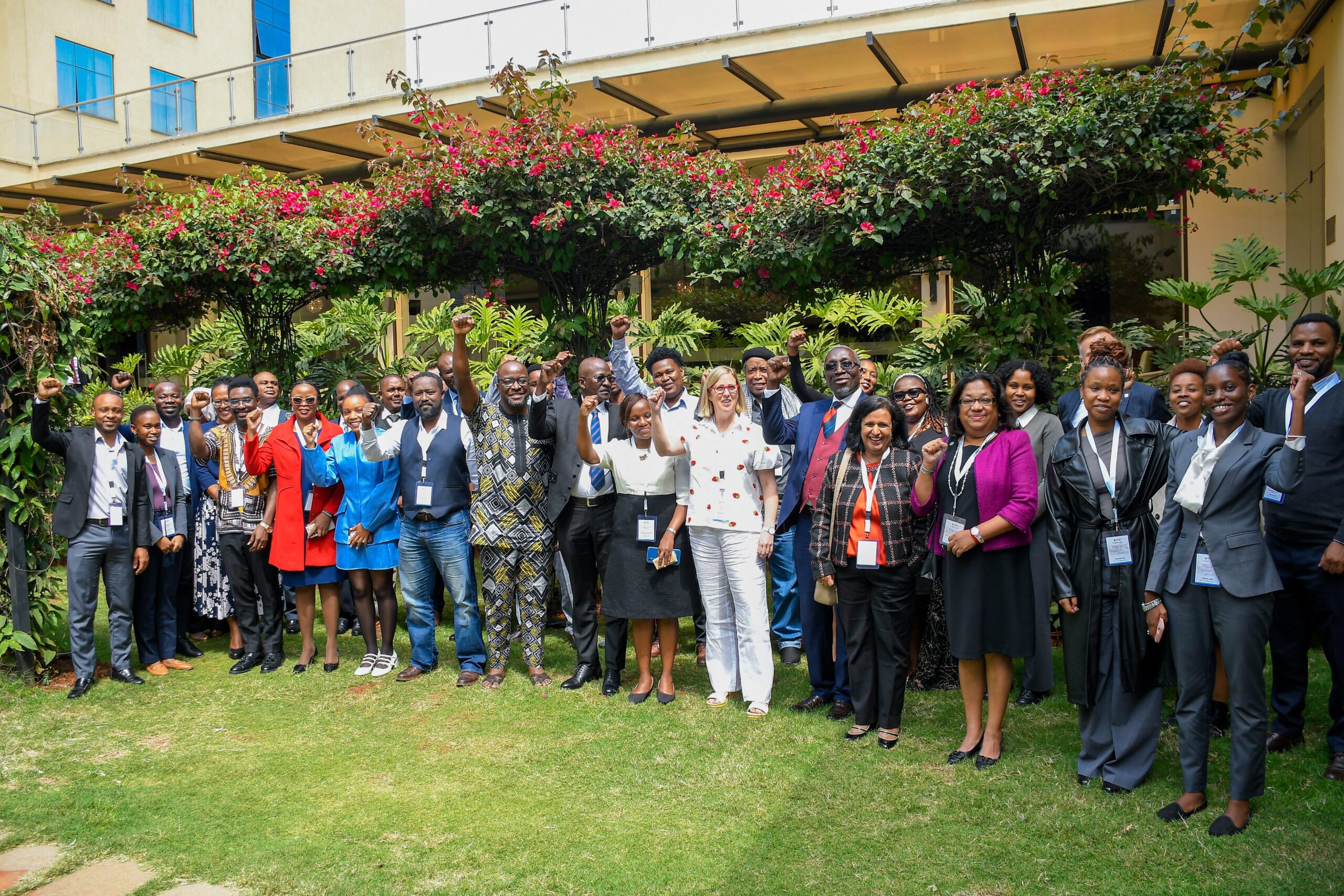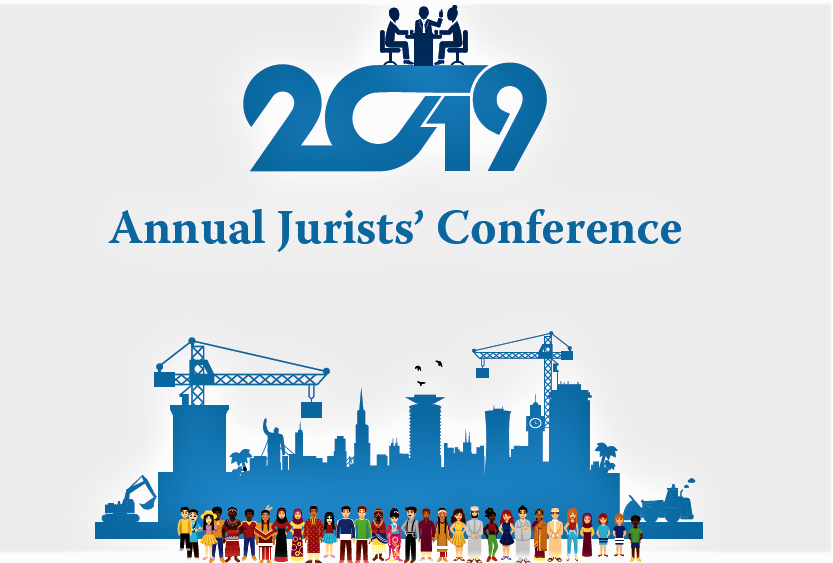#ICJKenyaTurns60 #AJC2019
By Cecilia Mugo
Each year, the Kenyan Section of the International Commission of Jurists (ICJ Kenya) organises and hosts an Annual Jurists Conference (AJC) that brings together civil society, jurists, members from the Bench and Bar, regional and global partners to discuss various trends on the rule of law, human rights and justice in the Kenya and the region.
This year is a significant milestone in the history of ICJ Kenya; it will mark sixty years (60) of promotion of human rights, justice and the rule of law in Kenya and the region. In celebration of the 60 years and together with its national and regional partners, ICJ Kenya will convene this 60th Anniversary Conference to deliberate and contribute to the discourse on emerging development frontiers, its impact on the rule of law, human rights and justice trends in Africa. The conference will interrogate not only the options and challenges of development on the rule of law but most importantly anticipate future trends and proposed opportunities to strengthen the rule of law in the continent.
Over the last few decades, there has been increasing convergence between human rights and development. Numerous reforms have been witnessed in the development practice with practitioners appreciating that it is no longer just about economic growth and GDP figures, but there is need to assimilate poverty reduction, human and social development, the environment, governance and institutions which is at the core of the global agenda 2030. At a regional level The African Charter on Human and Peoples Rights recognize socio-economic rights and some countries such as Kenya and South Africa, Namibia has codified them in their Constitutions. Nonetheless, in the 21stcentury the interaction between human rights and development has left a lot to be desired.
At a global level, the concept of Sustainable Development Goals (SDG) is guiding the development agenda of the next decade. Central to this discussion is the recognition of the importance of the rule of law in development. The rule of law has shaped development processes through the operation of laws, regulation and enforcement; enabled conditions and capacities necessary to development outcomes; and remained a core development end in itself.
In the words of Jeffrey Sachs, ‘we cannot continue on a single bottom-line focused on profit but rather a triple bottom line combining economic, social and environmental obligations”. It is upon this backdrop that in September 2015, the world leaders adopted Agenda 2030, which includes the 17 Sustainable Development Goals. The attainment of the SDGs by 2030 means that the attainment of economic growth can no longer be at the expense of the rule of law and human rights principles.
Africa is the new economic frontier, and African governments have partnered tremendously with development partners. Unfortunately, what development efforts should promise, and how they should be implemented, are questions that have triggered glitches in the recent past.
For instance, in the quest for the development of infrastructure in Africa, most countries have adopted the Public-Private Partnerships (PPP) model. The argument for this being that the private entities have the resources and the know-how in the various sectors. However, concerns have arisen as to the consequence of the PPP model on the citizenry especially on health care and education, and the accessibility of the social and economic rights to the general citizenry. Similarly, with respect to the vast infrastructural projects around the continent, concerns have arisen regarding respect of the rights of inclusion as well as the respect of environmental rights of the neighbouring communities.
Secondly, technology has led to amazing solutions to emerging globe’s challenges across various sectors in health, educations, communication, and infrastructure among others. However, the fast rate of development in technology, new innovations and accessibility to the mass continues to pose new challenges and threats to human rights, necessitating a more anticipatory approach than a responsive approach. In the last few years, the world has witnessed numerous new technologies innovations for human rights law and practice that demand the response of jurists across the world. Presently, for example, governments are using new technologies to gather information on their citizens, triggering difficult questions right to privacy and how this surveillance will affect human rights.
Thirdly, global civil society movement has continued to face threats of extinction as governments continue using both legislative and non-legislative mechanisms to gag civil society players. On the one hand, is the imposition of stricter laws that are aimed at pushing out certain players and on the other hand is the shrinkage of the resource pool. Further, there is also concern on the extent to which, this shrinkage is self-inflicted as civil society has allowed itself to be c When anticipating the future development and the rule of law in Africa, many impending challenges come to mind, which depicts the uncertainty and an inevitable transition the rule of law and human rights . There is an increase in new human rights groups and issues, and longer-term shifts in geopolitics and technology are creating both new challenges and opportunities for human rights. Illiberal democracies and populist governments are proliferating, prompting human rights actors to respond and innovate. At the same time, there is no regular review mechanism in the continent to track the challenges posed by development on the rule of law.
The rule of law and development are strongly interrelated and mutually reinforcing concept: the advancement of the rule of law at the national, regional and international levels is essential for sustained and inclusive economic growth, eradication of poverty and hunger and the full realization of all human rights and fundamental freedoms, including the right to development all of which in turn reinforce the rule of law.
The 2019 AJC will specifically examine how three development frontiers have interacted with the rule of law and rethink the emerging global, regional and national trends for each frontier. The three are Governments and Development (A case for Public-Private Partnerships.), Human Rights, Technology and new media and Civic space.
Jurists, civil society, partners and friends of ICJ Kenya are invited to join us on this very auspicious anniversary conference at Diani Reef Beach Resort and Spa, Ukunda on 20-23rd November 2019.
For more information, kindly contact us on info@icj-kenya.org or cecilia.mugo@icj-kenya.org








